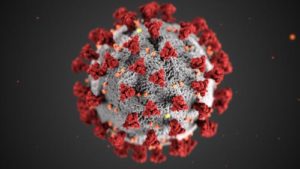Written by Chrystal Moulton, Staff Writer. 63% of patients in treatment group compared to 35% control recovered within 14-day trial period (p<0.01).
 Since its inception, the coronavirus has affected the world population by significantly inhibiting day-to- day activities and normal social interactions. SARS-CoV-2 or severe acute respiratory syndrome coronavirus-2 has infected more than 270 million people and contributed to more than 5 million deaths worldwide 1, 2. Research has turned to phytomedicines as a possible solution to manage symptoms and speed recovery 3, 4 . In the current study, researchers investigated treatment with Nigella sativa oil versus standard of care in patients clinically diagnosed with mild symptoms of COVID-19 4.
Since its inception, the coronavirus has affected the world population by significantly inhibiting day-to- day activities and normal social interactions. SARS-CoV-2 or severe acute respiratory syndrome coronavirus-2 has infected more than 270 million people and contributed to more than 5 million deaths worldwide 1, 2. Research has turned to phytomedicines as a possible solution to manage symptoms and speed recovery 3, 4 . In the current study, researchers investigated treatment with Nigella sativa oil versus standard of care in patients clinically diagnosed with mild symptoms of COVID-19 4.
The current study is a parallel-group, randomized, controlled, open label, phase two clinical trial. Patients admitted to the emergency room and outpatient clinics between May 1st and September 31st 2020 presenting with mild symptoms COVID-19 were recruited for this clinical trial. All patients were confirmed to have COVID-19 through polymerase chain reaction test within one week of symptom onset. Eligible patients were randomized to receive standard of care or Nigella sativa oil (NSO) (500mg capsules) twice daily for 10 days. Standard of care is defined as any conventional treatments prescribed by physicians (excluding Nigella sativa). Participants were required to report compliance to their assigned treatment daily, along with reaction to treatment and improvement in symptoms. Primary outcome was percent of participants with clinical recovery within 14 days (with recovery defined as the absence of symptoms for three days). Secondary outcomes were: duration of each symptom, number of days for recovery, hospital admission due to disease complications, and adverse drug reactions. Every patient was isolated and monitored daily from the day of randomization until day 14.
Of 233 patients with confirmed COVID-19, 183 patients were randomized to receive either Nigella sativa oil capsules (91) or standard of care (92) [control group]. Fifty-three percent of the patients were male (97) and 47% were female (86). The average age of participants was 36 ± 11years old and the average BMI 27.1 ± 5.6 kg/m2. Of the 183 patients across both treatment and control groups, 46% recovered within 14 days. Patients within the treatment group showed significantly higher recovery than those in the control group [NSO: 57 patients (63%), control: 32 patients (35%), P < 0.01]. Average days for recovery in the treatment group was significantly lower compared to those in control group (P < 0.01). Patients in the treatment group also had a shorter duration of certain symptoms including: chills (P= 0.02), runny nose (P= 0.02), loss of appetite (P = 0.01), and anosmia (P <0.01). Adverse reactions were observed in three patients in the treatment group who exhibited mild gastrointestinal symptoms. One patient in the treatment group was hospitalized due to severe nausea and vomiting. Four patients in the control group were hospitalized during the 14-day study period: one with pneumonia and three with hypoxemia. Good compliance was observed across both study groups.
Supplementation with 500mg Nigella sativa oil capsules twice daily for 10 days in adults with mild symptoms of COVID-19 was associated with higher recovery compared to adults with mild symptoms receiving standard of care. Lower hospitalization was also observed in patients treated with Nigella sativa oil capsules. Results could not be generalized over other disease severities or age categories due to sample size. More clinical studies with a higher sample size including patients with severe disease and a more rigorous clinical design will be needed to objectively test the effectiveness of Nigella sativa oil in treating COVID-19 patients.
Source: Koshak, Abdulrahman E., Emad A. Koshak, Abdullah F. Mobeireek, Mazen A. Badawi, Siraj O. Wali, Husam M. Malibary, Ali F. Atwah, Meshari M. Alhamdan, Reem A. Almalki, and Tariq A. Madani. “Nigella sativa for the treatment of COVID-19: An open-label randomized controlled clinical trial.” Complementary therapies in medicine 61 (2021): 102769.
© 2021 The Authors. Published by Elsevier Ltd. This is an open access article under the CC BY license (http://creativecommons.org/licenses/by/4.0/)
Click here to read the full text study.
Posted December 28, 2021.
Chrystal Moulton BA, PMP, is a 2008 graduate of the University of Illinois at Chicago. She graduated with a bachelor’s in psychology with a focus on premedical studies and is a licensed project manager. She currently resides in Indianapolis, IN.
References:
- Oganization WH. Timeline of WHO’s response to COVID-19. Accessed December 20, 2021, 2021. https://www.who.int/emergencies/diseases/novel-coronavirus-2019/interactive-timeline#!
- Organization WH. WHO Coronavirus (COVID-19) Dashboard. Accessed December 20, 2021, 2021. https://covid19.who.int/
- Koshak DAE, Koshak PEA. Nigella sativa L as a potential phytotherapy for coronavirus disease 2019: A mini review of in silico studies. Curr Ther Res Clin Exp. 2020;93:100602. doi:10.1016/j.curtheres.2020.100602
- Koshak AE, Koshak EA, Mobeireek AF, et al. Nigella sativa for the treatment of COVID-19: An open-label randomized controlled clinical trial. Complement Ther Med. Sep 2021;61:102769. doi:10.1016/j.ctim.2021.102769
